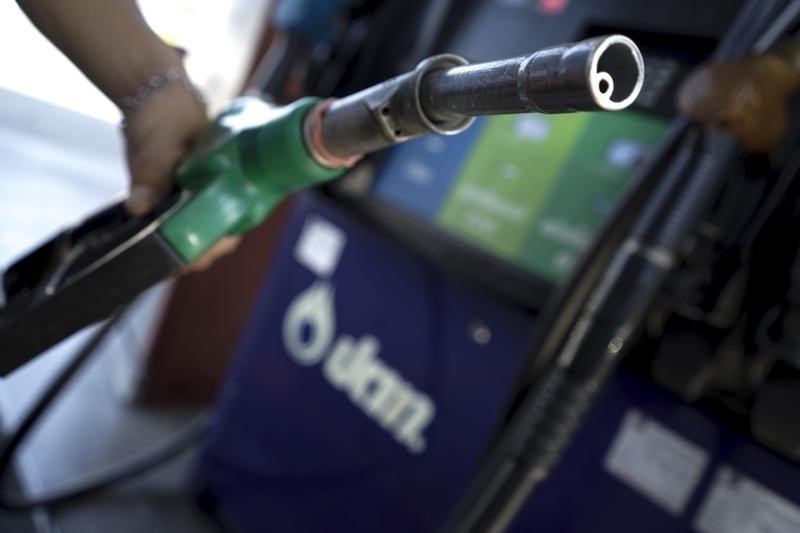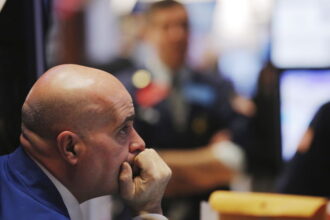Investing.com — The push and pull in crude prices continues with Tuesday’s rally triggered by the dollar’s drop to two-month lows and optimism ahead of the U.S. government’s weekly oil consumption-supply report.
“It’s the normal summer demand for fuels, exacerbated somewhat by the rhetoric of producers vowing to cut output to make supply even tighter than normal at this time of year,” said John Kilduff, partner at New York energy hedge fund Again Capital.
“On top of that, you have the dollar’s collapse making oil an even more attractive buy. Thus, the market volatility where one day it drops on rate hike fears and the next day it jumps on demand/dollar boost.”
New York-based West Texas Intermediate, or , crude settled up $1.84, or 2.5%, at $74.83 per barrel. In the prior session, it slid 1.2% after last week’s gain of 4.6%.
London-based finished the U.S. trading session up $1.71, or 2.2%, at $79.40, after Monday’s 1% slide that came after last week’s 4.8% rally.
The , which pits the U.S. dollar against six major currencies, fell to 101.34, its lowest since the first week of May. A weaker dollar makes commodities priced in the greenback, such as oil, more attractive to buyers using other currencies.
The dollar tumbled after several Federal Reserve officials said on Monday the central bank would likely need to raise interest rates further to bring down inflation but the end to its current monetary policy tightening cycle was getting close.
The rally in crude also came ahead of Wednesday’s release of the Consumer Price Index, or , report for June, which economists said was likely to have grown 3.1% on the year.
Inflation, as measured by the CPI, hit 40-year highs in June 2022, expanding at an annual rate of 9.1%. Since then, it has slowed, growing at just 4% per annum in May, for its slowest expansion in two years. The Fed’s favorite price indicator, the Personal Consumption Expenditures, or , Index, meanwhile, grew by 3.8% in May.
The Fed’s tolerance for inflation is, meanwhile, just 2% per annum. In response to the runaway price growth since the end of the coronavirus pandemic in March 2022, the central bank has raised interest rates by 10 times, adding a total of 5% to the previous 0.25%.
While the its rate hike cycle last month, there is speculation it could resume that when it meets on July 26 for its next rates review.
Still, policy-makers at the central bank seemed unanimous in their thinking that the Fed’s rate hike cycle was nearing its end, though rate cuts — which is what risk takers really want, will some time to materialize.
Market participants were also on the lookout for U.S. weekly oil inventory data, due after market settlement from API, or the American Petroleum Institute.
The API will release at approximately 16:30 ET (20:30 GMT) a snapshot of closing balances on U.S. crude, gasoline and distillates for the week ended July 7. The numbers serve as a precursor to official inventory data on the same due from the U.S. Energy Information Administration on Wednesday.
For last week, analysts tracked by Investing.com expect the EIA to report a drop of 2.156 million barrels, versus the 1.508M barrel reduction reported during the week to June 30.
On the front, the consensus is for a build of 0.827M barrels over the 2.550M-barrel decline in the previous week. Automotive fuel gasoline is the No. 1 U.S. fuel product.
With , the expectation is for a climb of 0.170M barrels versus the prior week’s deficit of 1.045M. Distillates are refined into , diesel for trucks, buses, trains and ships and fuel for jets.
Read the full article here










